The United States is seeking a meeting of the Global Coalition Against ISIS early in 2020 that will focus on threats in West Africa and the Sahel, a senior official said on Thursday, November 14.
Speaking at a press conference following a ministerial-level meeting of the Coalition in Washington, Ambassador Nathan Sales, who leads the U.S. State Department’s Counterterrorism Bureau, pointed to successes against Islamic State in Syria and Iraq, but warned that the threat from ISIS affiliates around the world remains.

“We celebrate our extraordinary success in the complete destruction of the so-called caliphate in Syria and Iraq and the elimination of its leader, Abu Bakr al-Baghdadi,” Sales said. “Millions of people have been liberated from ISIS’s brutal rule.”
“The false caliphate is gone, but the global threat from ISIS remains,” he added.
Sales said that the ministers discussed “the need to maintain and intensify pressure on ISIS branches and networks outside the core.”
“In this phase of our fight, we need to complement our military capabilities with civilian counterterrorism tools, including law enforcement, border security, information sharing, sanctions, and counter-messaging,” Sales said. “Toward that end, we are working to organize a Coalition meeting in early 2020 that will focus on the ISIS threat in West Africa and the Sahel.”

Threats in the Sahel and West Africa
Earlier, U.S. Secretary of State Mike Pompeo said that agreement had recently been reached “at the working level that West Africa and the Sahel would be a preferred initial area of focus for the Coalition outside of the ISIS core space.”
“ISIS is outpacing the ability of regional governments and international partners to address that threat,” Pompeo said.
Tens of thousands of people have been killed and millions more displaced by violence in the Sahel and West Africa over the past decade. Militant Islamist groups are largely responsible, and they are increasingly tightly connected to international networks like al-Qaeda and Islamic State.
Sahelien ISIS affiliate Islamic State in the Greater Sahara is primarily active in Mali and Burkina Faso, but since May ISIS has attributed ISGS insurgent activities in the Mali-Burkina Faso-Niger tri-border area to its West Africa Province affiliate.
A faction of the Boko Haram jihadist group which began its bloody insurgency in northeastern Nigeria in 2009, ISWAP’s primary area of operations is the Lake Chad region of Nigeria, Niger, Chad and Cameroon, but in recent months ISWAP has intensified attacks on military locations further west.
The majority of insurgent attacks in the Sahel are attributed to JNIM. Formed in a March 2017 merger of several smaller groups including the Sahara branch of al-Qaeda in the Islamic Maghreb, Ansar Dine and al-Mourabitoun, JNIM’s leadership has pledged allegiance to al-Qaeda leader Ayman al-Zawahiri.
Sales noted concerns about al-Qaeda-linked groups, saying that “the tools that we are working to develop in that part of Africa are threat agnostic and will be useful against groups like al-Qaeda in greater Sahara as well as JNIM and other AQ affiliates.”

Meeting delayed over events in Syria?
Sales had previously signalled a shift in to Coalition focus in August, when he said the U.S. would seek additional contributions from the Coalition to combat ISIS and its affiliates in Africa, pointing to an Autumn meeting on West Africa and the Sahel.
The apparent delay of that meeting until next year may be explained by recent events in Syria.
“This was the first ministerial meeting since the destruction of the caliphate and since the takedown of al-Baghdadi. So it gave us a chance to … and also the Turkish incursion into northeast Syria. So it gave us a chance to recalibrate where we are and where we’re going,” the U.S. Special Envoy to the Coalition James Jeffrey said at the press conference.
Precipitated by President Donald Trump’s decision to withdraw U.S. troops from the border, the Turkey-led incursion targets the Coalition-backed Syrian Democratic Forces, which fought the ground war against ISIS in north and east Syria. Operation Peace Spring has been criticised by Turkey’s NATO allies – Jeffrey said that the U.S. was “not happy,” singling out the resulting “introduction of Syrian forces, Russian troops into the region.”
The apparent delay also chimes with recent remarks from French President Emmanuel Macron. After talks with his counterparts from Chad, Niger and Mali Macron on Tuesday said France was “confirming and consolidating its commitment” to the Sahel, and that decisions would be taken “in the coming weeks.”
Also on Tuesday, the European Union’s diplomatic chief said the bloc will increase its presence and the level of support it gives to its partners fighting terrorism in the Sahel.

Former colonial power France has been trying to build international support for a new military force to work alongside its 4,500-strong Operation Barkhane counter-terrorism mission in the Sahel.
French plans for a new international special operations task force for the Sahel were first reported in early October, and on November 5, Armed Forces Minister Florence Parly said that France expected the new force – dubbed “Takuba – to deploy in Mali by 2020. Around a dozen European states “have expressed an interest in taking part in this initiative,” a French Armed Forces spokesperson said.
Estonia is the first partner to confirm a special operations forces deployment to Takuba. A defense ministry spokesperson told The Defense Post on Wednesday that special forces will deploy to Mali in the second half of 2020 and that force will ‘assist, advise and accompany’ the Malian Armed Forces.
But, despite a significant presence of U.S. military personnel Niger, U.S. Africa Command has ruled out a contribution of personnel to the new mission. AFRICOM will “continue to support our French and other partners” in West Africa but “is not considering additional deployments to participate in TF TAKUBA,” a spokesperson said.
Insurgency spreading westward
“What is needed is a whole of government approach, military force where appropriate and where needed, but also boosting civilian counterterrorism capability,” said Sales, who is also the U.S. State Department’s Acting Under Secretary for Civilian Security, Democracy, and Human Rights.
“We’ve been doing a lot bilaterally,” Sales said, pointing to a recent meeting in Senegal when he discussed the potential threat to west African coastal states “from a growing ISIS presence in places like Mali and Niger and Burkina Faso.”
Those comments echo United Nations Secretary General Antonio Guterres, who said in a report to the Security Council published on Tuesday that he was “deeply concerned about the spiralling violence in the Sahel, which has spread to coastal States of West Africa, along the Gulf of Guinea.” Guterres had warned in July of a potential expansion of West African insurgency towards Ghana, Benin, Togo, and Cote d’Ivoire.
The Secretary-General noted that since January more than 1,500 civilians have been killed in Burkina Faso and Mali, and more than one million people have been internally displaced across the five countries. Access has become increasingly difficult, but 12 million people are in need of humanitarian assistance, he said.

Guterres again called for more international support for the G5 Sahel Joint Force (FCG5S), a planned 4,500-strong joint counter-terrorism force comprising troops from Burkina Faso, Chad, Mali, Niger and Mauritania. Launched in 2017, the initiative has been undermined by lack of training, poor equipment and a shortage of funds.
France, which spearheaded the FCG5S initiative, has also called for additional support for the force, and the G5 Sahel leaders have repeatedly called for a mandate under Chapter VII of the U.N. Charter – measures which could authorize the use of sanctions or military intervention in situations where peace and security is threatened, and enabling regular funding from the U.N.
But the U.S. has pushed back against direct funding, preferring instead bilateral funding for individual states.
“We need to integrate and we are integrating these military lines of effort and bilateral engagements along with Coalition multilateral engagements to boost the capabilities of these states on the front lines,” Sales said.


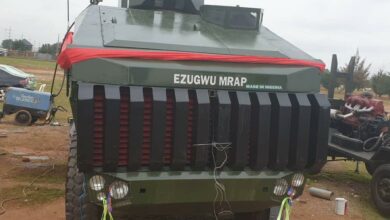
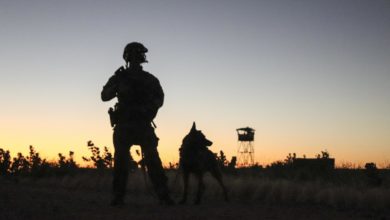

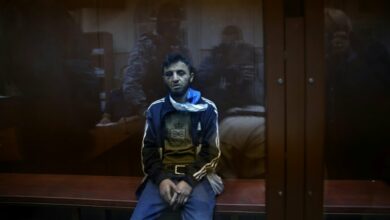
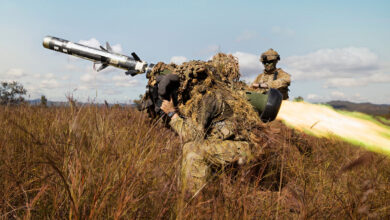
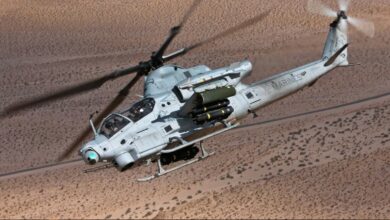
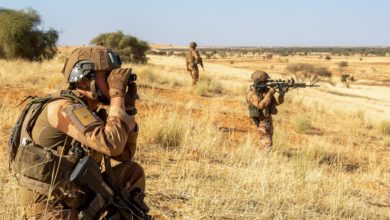


4 Comments